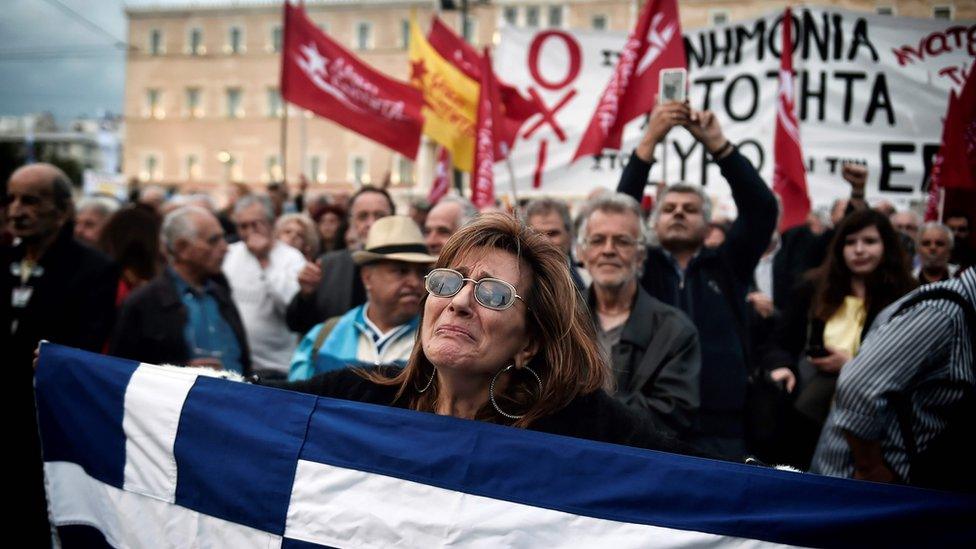Greece elections: Centre-right regains power under Kyriakos Mitsotakis
- Published
Greece's New Democracy celebrates election win in Athens
Greece's centre-right opposition party New Democracy has won the nation's snap general election.
With most districts counted, Prime Minister Alexis Tsipras admitted defeat to his rival, Kyriakos Mitsotakis.
New Democracy has 39.85% of the vote so far, with Mr Tsipras's leftist Syriza party in second place with 31.53%.
Current projections give New Democracy an outright majority, as the winner receives 50 extra seats in parliament.
Nearly all districts have returned their results, external, official figures show.
Turnout in the election was about 57% – one of the lowest figures in decades.
There have been a half dozen elections in recent years and on Sunday, many residents flocked to the beaches or sheltered at home as temperatures exceeded 35C in places.
What did Mitsotakis say in his victory speech?
The prime minister-elect told supporters he had been given a strong mandate for change.
"The country proudly raises its head again," he told the crowd in the capital Athens, saying he would be a prime minister for all because Greeks were "too few to stay divided".
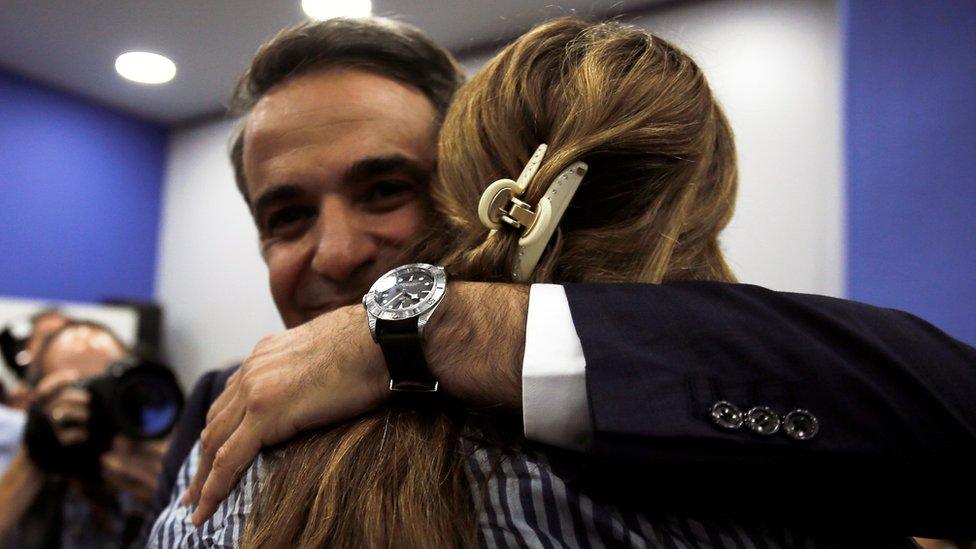
A supporter hugs New Democracy leader Kyriakos Mitsotakis
Speaking as the results became clear, Mr Tsipras confirmed he had called Mr Mitsotakis to offer him his congratulations.
"Today, with our head held high we accept the people's verdict. To bring Greece to where it is today we had to take difficult decisions [with] a heavy political cost," Mr Tsipras told journalists.
Outgoing European Commission President Jean-Claude Juncker congratulated Mr Mitsotakis on his "clear victory".

What do the results say so far?
The centre-left Movement for Change is on 8.1%, followed by the Communist Party on 5.3%.
The far-right Golden Dawn party is short of the 3% minimum needed to enter parliament by the narrowest of margins - at 2.93%.
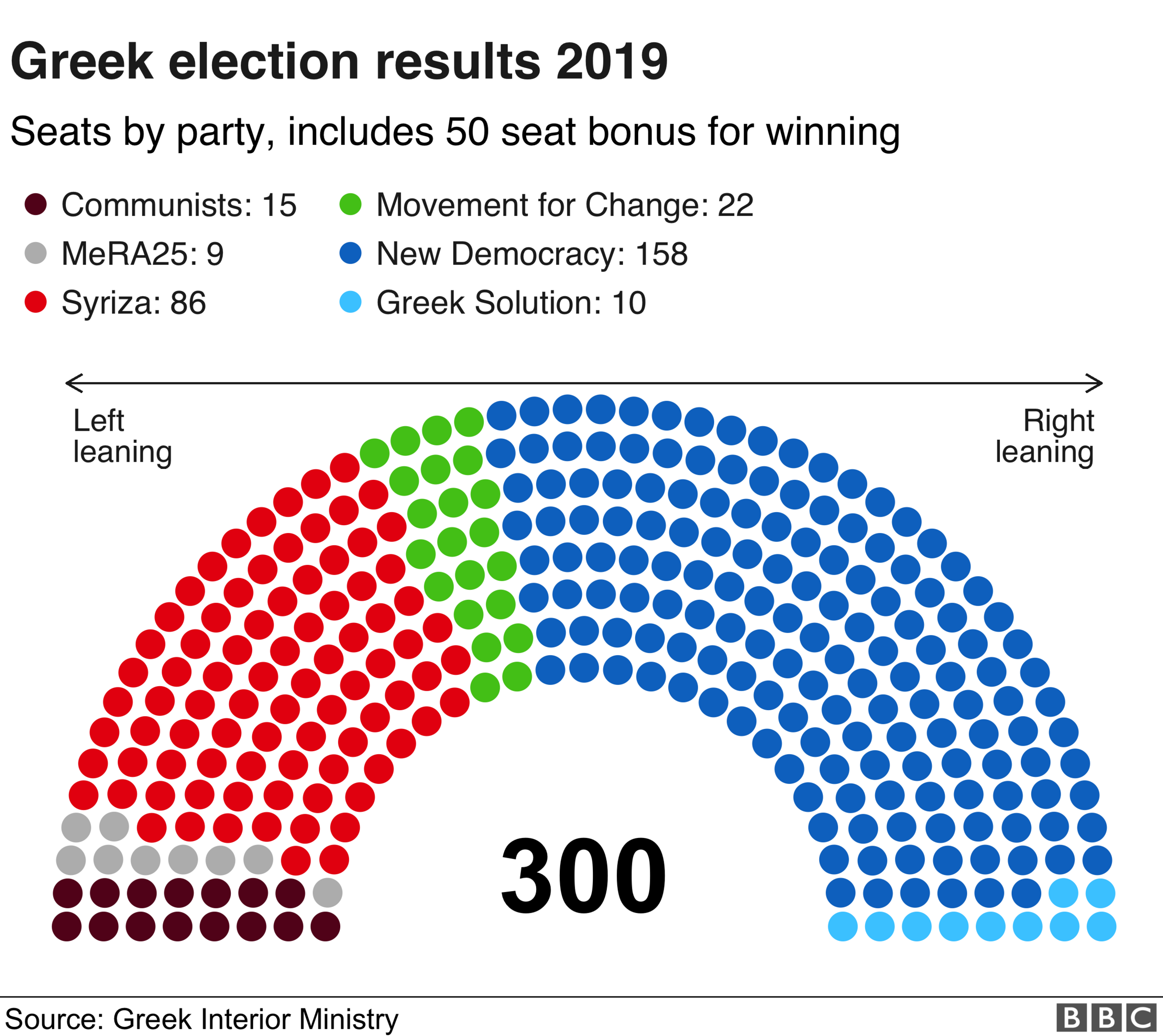

The nationalist pro-Russian Greek Solution and MeRA25, the left-wing party of former Finance Minister Yanis Varoufakis, both crossed the threshold.

Too many promises
Analysis by Mark Lowen, BBC News, Athens
Back in 2015, Alexis Tsipras seemed like the figure of change.
In his firebrand rallies, the left-wing populist vowed to tear up Greece's bailout programme and end austerity.
But he hopelessly overpromised.
Under pressure from the EU, capital controls on its banks and the threat of "Grexit" - departure from the euro - he was forced into a humiliating U-turn, signing up to a third, €89bn (£80bn; $100bn) bailout, and more austerity.
His support base began to ebb away.
As the Mitsotakis era begins, one of Europe's iconic leftist leaders of the past four years departs the stage.
But he'll regroup in opposition and wait in the wings to seize on any misstep by Greece's new leader.

Greek media also report a ballot box was stolen by an unidentified group which had forced its way into one polling station.
What happened to Syriza's support?
Prime Minister Tsipras, who swept to power in 2015, called the elections after suffering defeat in the local and European votes in May.
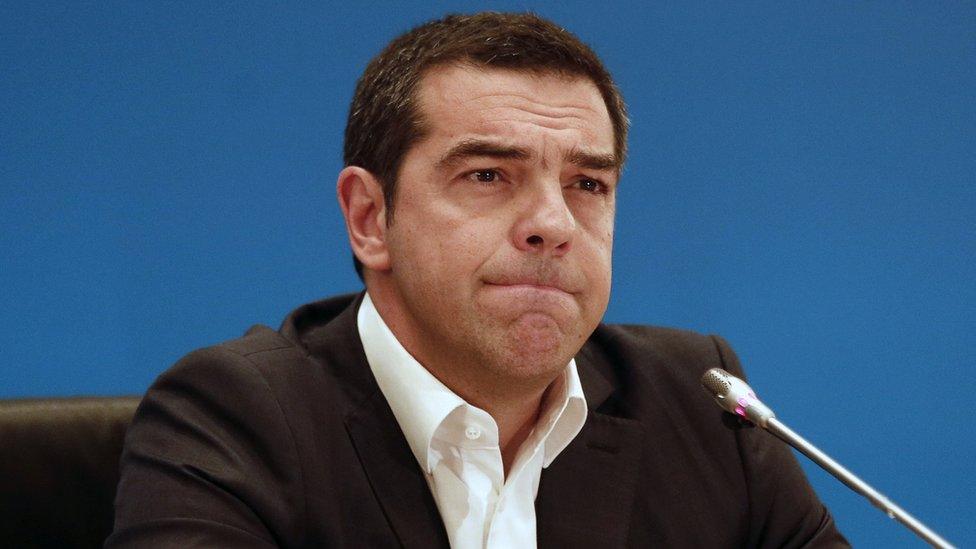
Mr Tsipras addressed the press after his defeat
He had toppled New Democracy from power by campaigning against the austerity policies that had affected Greeks for years.
Yet within months, he was forced to accept tough conditions in return for Greece's third international bailout.
Mr Tsipras faced a revolt from within his party as a result and responded by calling fresh elections, which he won.
However, his party's popularity was dented as unemployment increased, and Greece's economy shrank.
Why young people have suffered the most from Greece’s economic collapse
Mr Mitsotakis attacked his rival's record, saying that economic improvement was too slow.
He also benefited from widespread anger at a landmark deal with North Macedonia over the name of the country - which it shares with a Greek region.
What does New Democracy stand for?
New Democracy has promised to lower taxes and privatise services in the country, which is still feeling the effects of the 2008 financial crisis.
Greece has been in receipt of a series of bailout programmes over the past decade, which it officially "exited" last August as economic growth returned.
But youth unemployment remains high, and New Democracy has counted many 18-24 year olds among its supporters.
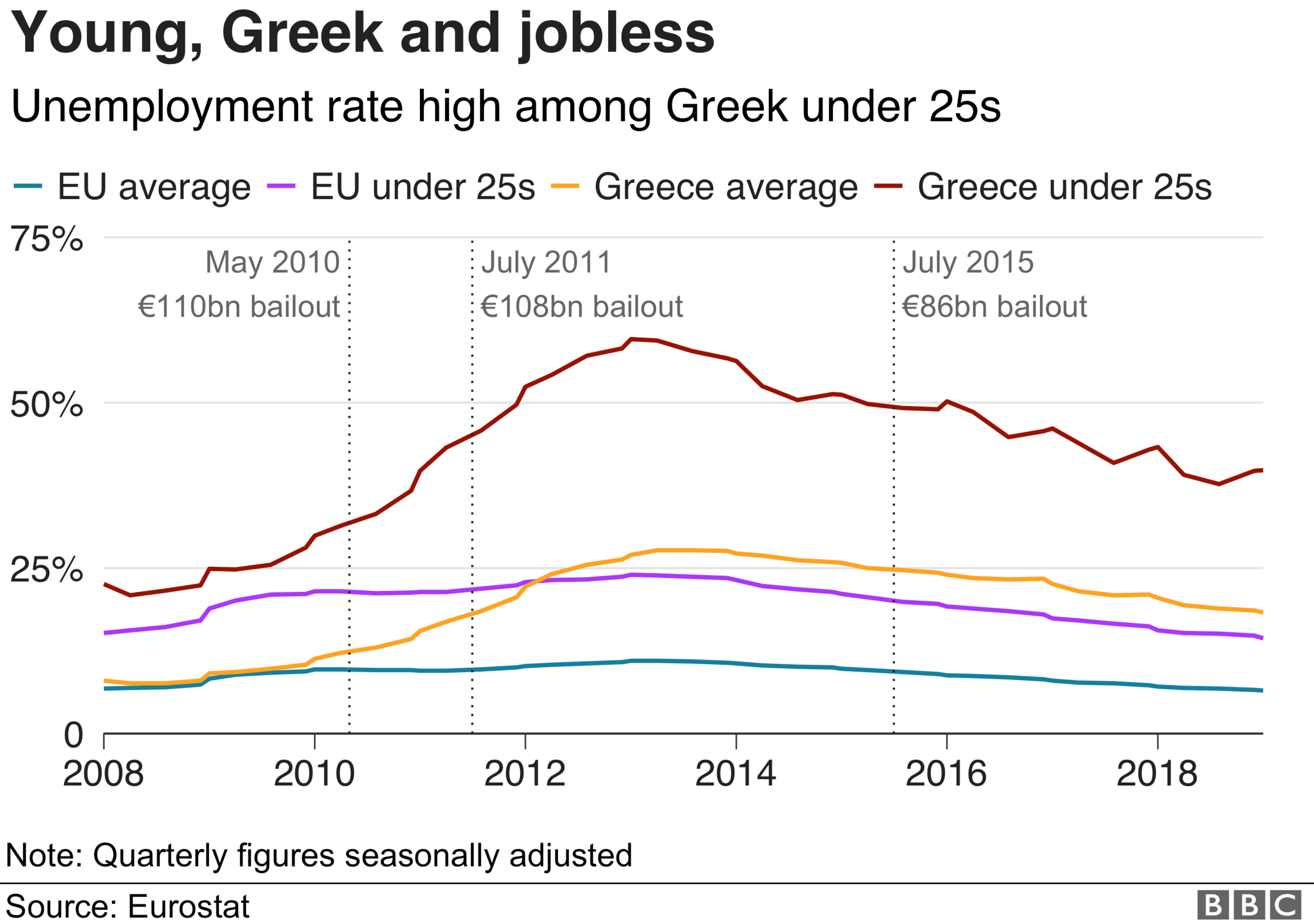

The potential new prime minister comes from one of Greece's long-standing political dynasties.
Kyriakos Mitsotakis is the son of former Prime Minister Konstantinos Mitsotakis. His sister, Dora Bakoyannis, was mayor of Athens when the city hosted the Olympics in 2004, before becoming Greek foreign minister.
- Published1 July 2019

- Published8 July 2019

- Published8 July 2019
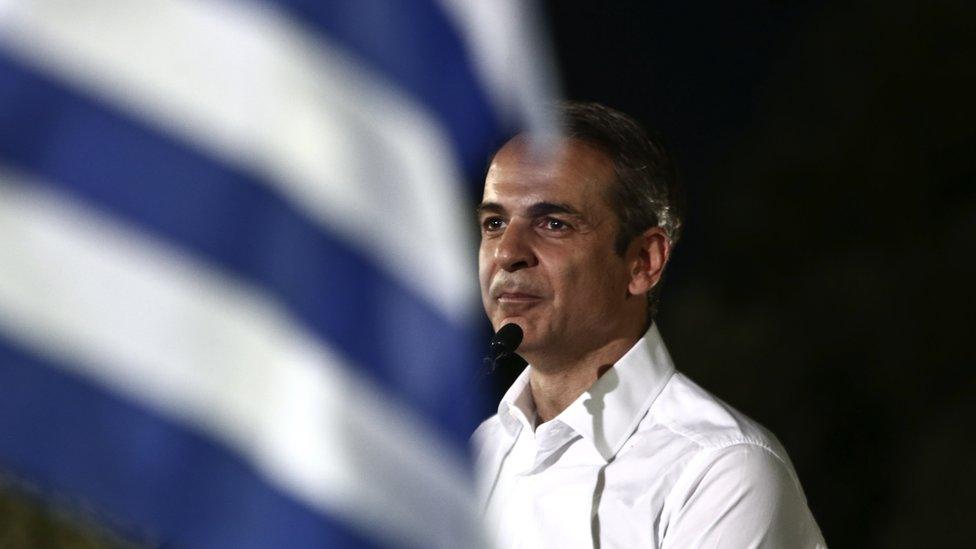
- Published13 May 2019

- Published5 May 2019

- Published20 August 2018
